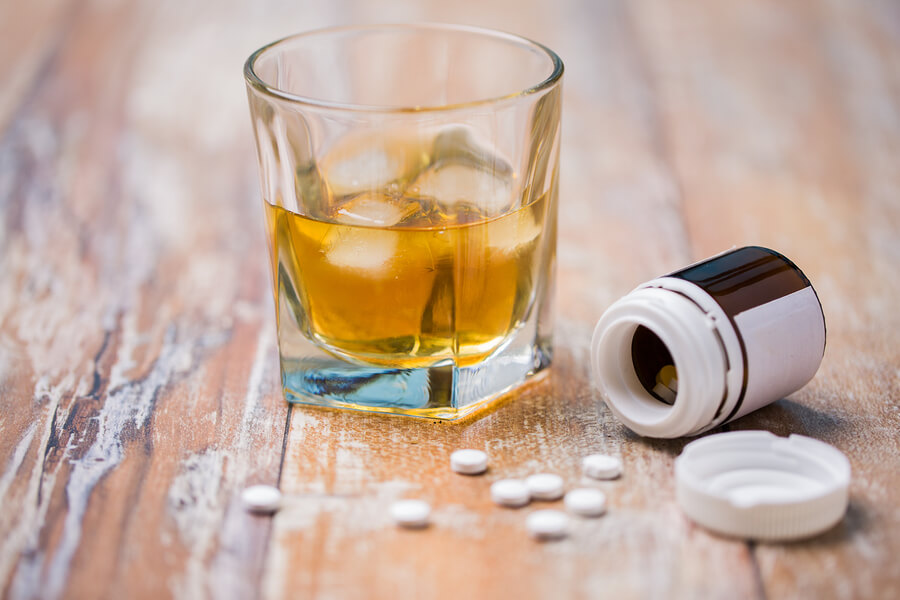A common root for alcohol or opioid addiction is pain. Some seek to escape negative thoughts and feelings, while others hope to manage physical pain. No one intends to become addicted. Rather, it starts as a way to cope and then becomes a habit or even a dependence you can’t shake. Like quicksand, you sank deeper and deeper into your substance use until you felt like there was no escape.
Unfortunately, the opioid epidemic continues to rage on, and there have been more stories of people mixing alcohol and opioids. The tragic loss of Angels pitcher Tyler Skaggs who experienced an accidental overdose as a result of mixing alcohol with opioids is a harrowing example.
This heartbreaking story has inspired us to shed more light on the dangers of mixing alcohol with opioids. If you or a loved one are suffering from an alcohol or opioid addiction, know that you’re not alone and there is hope for recovery. Keep reading to understand why combining these substances is so dangerous and how you can get help.
Why Is Mixing Alcohol and Opioids So Dangerous?
As you might already know, drinking a heavy amount of alcohol can have serious effects on its own. But combining alcohol and opioids increases the risk of overdose and other serious symptoms.
Let’s break it down: Alcohol is a depressant, which means your body treats it like a sedative. Opioids are also a depressant, and many have the side effect of slowing down your breathing. When these two substances mix together, the effects of each substance intensify and put the brain and the central nervous system in danger.
The Risk of Depressed Breathing
Depressed breathing, or when your lungs are not getting enough oxygen, is one of the most dangerous consequences of taking opioids while drinking. It’s a result of shallow breathing as the body gains less of an urge to take in oxygen.
When taken together, alcohol and opioids have the power to slow a person’s respirations until they stop breathing entirely. It’s common for someone who has depressed breathing to have their breathes frequently start and stop. As a result, the supply of oxygen goes down until the body can no longer breathe.
And without enough oxygen, your body will begin to shut down. The brain starts to turn off organ systems in the body in an attempt to save energy. Without immediate treatment, this can result in permanent brain damage or death. Unfortunately, since alcohol and opioids amplify each other’s effects, you may not even realize what is happening to you.
Increased Risk Due to Addiction
If you mix alcohol and opioids and don’t experience any negative side effects, the trouble isn’t over. Part of what makes this combination so dangerous is how addictive both of these substances are. Both alcohol and opioids carry a high risk of physical dependence. Once an addiction develops, it’s not uncommon for the fear of withdrawal to convince people to mix these substances in order to feel better.
Mixing alcohol and opioids is complicated, and that goes for treatment, as well. Drugs like Naloxone can save the lives of people in the middle of an opioid overdose. But it has no effect on any alcohol in your system. Given how fast things escalate when two depressants are mixed, having an overdose that’s more challenging for professionals to treat only makes the situation more dangerous.
Why You Need Treatment for an Alcohol and Oxycodone Addiction
It’s important to seek treatment for an alcohol and oxycodone addiction. The danger of mixing these substances is real. And the withdrawal symptoms for opioids and alcohol can be intense. That’s why treatment centers like Silver Maple Recovery offer medication-assisted detox. The goal is to make you as comfortable as possible while going through the difficult transition of breaking free from the dependence of alcohol and opioids.
For co-occurring conditions like an opioid and alcohol addiction, finding the right help can make a world of difference.
Recovery is Possible with Silver Maple Recovery
At Silver Maple Recovery, we use evidence-based treatment to help you break the cycle of addiction. Whether it’s your first try at recovery, or your next brave attempt, our experts are here to walk alongside you during your journey.
To learn more about how we can help you move closer towards recovery, contact our team today. We have professional caregivers ready to answer your call 24 hours a day.







